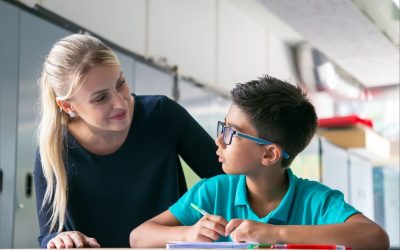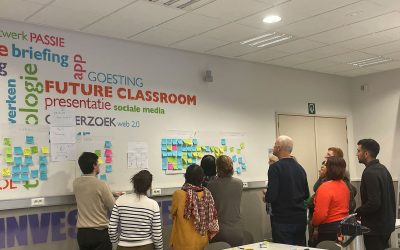The Agile4Collaboration ventures to adapt Agile Learning methods to the European context but also seeks to foster a culture of innovation, collaboration, and self-directed learning across the continent. Drawing inspiration from the Agile XR project, another pioneering Erasmus+ co-funded initiative partnering with mutual project partners Collective Up, UFV and RHIZO, Agile4Collaboration is set to transform educational paradigms by leveraging lessons learned and best practices from its predecessor.
Embracing Agile Methodologies for Dynamic and Responsive Learning
The Agile XR project illuminated the transformative power of Agile methodologies in education. Educators can create more engaging, flexible, and adaptive learning environments by incorporating iterative processes and continuous feedback mechanisms. This approach is particularly pertinent in today’s rapidly changing educational landscape, where traditional pedagogical techniques often fall short of meeting learners’ diverse needs. For Agile4Collaboration, the key takeaway is clear: embedding Agile practices in educational programmes promises to enhance learning outcomes and equip learners with the agility to navigate the complexities of the modern world.
Harnessing the Potential of VR and Web Technologies
Agile XR’s exploration of virtual and extended reality (VR/XR) tools presents a tangible experience for Agile4Collaboration. The project demonstrated these technologies’ vast potential in creating immersive and interactive learning experiences that transcend physical boundaries. However, it also highlighted significant challenges, such as the need for improved VR onboarding experiences and more user-friendly interfaces. Agile4Collaboration can build on these insights in developing PR3, a digital tool to facilitate two key agile learning rituals (offerings/request board and community mastery board). As Agile XR highlighted, existing web and VR software does not fully consider the context of an educational classroom setting, offering room for innovation, thereby ensuring that learners can benefit fully from the enriched learning environments they offer.
Advancing Digital Literacy and Technological Proficiency
A core lesson from the Agile XR project is the importance of fostering digital literacy and technological proficiency among teachers and students. Integrating emerging technologies like VR in the classroom is not merely about introducing new tools but about cultivating a mindset geared towards continuous learning and adaptation. Agile4Collaboration stands to benefit from this insight by emphasizing the professional development of educators in applying agile learning in a multimodal learning context (in-person, online, blended). By equipping teachers with the skills and knowledge to navigate and utilize the agile learning paradigm in conjunction with technologies, the project will significantly enhance the digital competencies of learners, preparing them for a future where technological fluency is indispensable.
Explore the Agile XR Project Results
A comprehensive repository of resources awaits educators, researchers, and enthusiasts looking to dive deeper into the innovative practices and outcomes of the Agile XR project. By visiting www.agilexr.eu, you can access the entire spectrum of project results, including digital guides, instructional materials, workshop templates, and insightful analyses of agile methodologies integrated with VR/XR technologies in education.
Conclusion
The Agile4Collaboration project has a unique opportunity to transform European education by embracing the lessons learned from the Agile XR project. By highlighting how to use Agile methodologies in multimodal learning (in-person, online, hybrid) [PR2, 4], leveraging the potential of web technologies [PR3], and advancing digital literacy [PR3,4,5], Agile4Collaboration can create a more dynamic, responsive, and inclusive educational landscape. As the project progresses, the focus must remain on innovation, collaboration, and the continuous development of educators and learners alike. In doing so, Agile4Collaboration will achieve its aims and set new standards for Agile Learning in Europe and beyond.




0 Comments